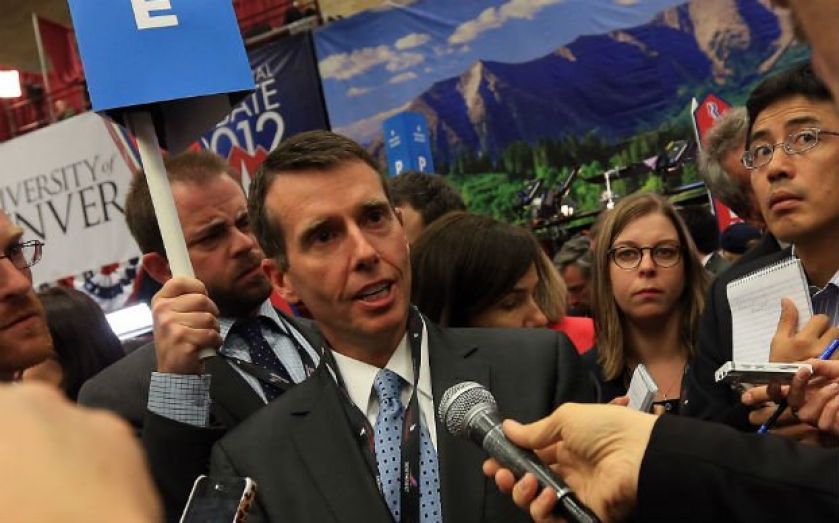Uber’s battle against taxi industry and regulators steps up a gear with Obama adviser on board

In Uber’s relentless battle against regulators and the taxi industry around the world, a political strategist was considered a crucial element for negotiating roadblocks in the disruptive taxi service’s plans for world domination.
Now the search is over, and Uber has no doubt spent a pretty penny of its billions of dollars of investment (which currently values the company at around £18bn) on one of America’s top strategists.
David Plouffe is a political heavyweight. Still a close confidante of the US president after his departure from the White House last year, the 47-year-old helped Obama to victory in 2008 and re-election in 2012.
In Obama’s inauguration speech he called Plouffe "the unsung hero of this campaign, who built the . . . best political campaign, I think, in the history of the United States of America".
The political matchmaker between Plouffe and Uber is said to be another prominent Obama adviser, Jim Messina.
Messina is best known this side of the Atlantic as the Conservatives' campaign adviser. He was hired last year ahead of the General Election to help the party focus on social media and online political organisation in the same vain as Obama, who successfully rallied a young online electorate to win office.
In addition to Messina, another former cohort of Obama’s band of election strategists was tapped by Labour, as both sides of the political divide attempt to corral an Obama-esque turnout of voter support next year.
For Labour, David Axelrod was brought on board as a strategist for Ed Miliband’s election bid next year.
Axelrod called Uber the “perfect place for him [Plouffe]”, while Messina said of Plouffe's hiring: “You have the smartest strategist I have ever met, with one of the most innovative companies in America.”
These connections between Plouffe and the potential UK government – whichever way the vote swings – are good news for Uber.
While Plouffe will be based in San Francisco and faces the potential ire of regulators in numerous states, his remit is global: with London playing host to the ongoing and high-profile battle between Uber and London cabbies, Plouffe may not be hands on in the fight, but his strategic reach is likely to be felt in how it plays out in future.
Google co-founder Eric Schmidt, a friend of Uber founder Travis Kalanick, called the hire "a game-changer for Uber” and Plouffe “uniquely suited…to bridging the worlds of business and politics”.
Kalanick has not been shy about his feelings toward the cab industry, which he called “assholes” at a recent tech conference.
In a blog post announcing Plouffe’s hire, he said it was necessary for Uber to run a political campaign to sway consumers, calling the taxi industry a "cartel".
Our mission has become a surprisingly controversial topic. Over the years, what I’ve come to realize is that this controversy exists because we are in the middle of a political campaign and it turns out the candidate is Uber. Our opponent – the Big Taxi cartel – has used decades of political contributions and influence to restrict competition, reduce choice for consumers, and put a stranglehold on economic opportunity for its drivers.
Our roots are technology, not politics, writing code and rolling out transportation systems. The result is that not enough people here in America and around the world know our story, our mission, and the positive impact we’re having. Uber has been in a campaign but hasn’t been running one. That is changing now.
Plouffe will manage global policy and political activities, communications and branding efforts for Uber. On message already, he said:
“Uber has the chance to be a once in a decade if not a once in a generation company. Of course, that poses a threat to some, and I’ve watched as the taxi industry cartel has tried to stand in the way of technology and big change.
Ultimately, that approach is unwinnable. But I look forward to doing what I can right now to ensure drivers and riders are not denied their opportunity for choice in transportation due to those who want to maintain a monopoly and play the inside game to deny opportunity to those on the outside."